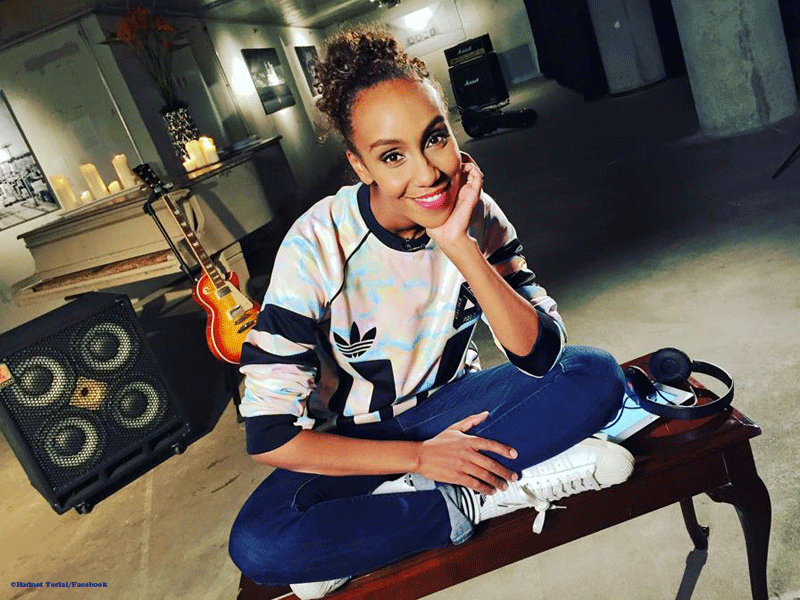Hadnet Tesfai is today one of the most popular Black people in Germany. She began her career as a television presenter, among others, for the music channel MTV Germany from 2008 to 2010.

Ms Tesfai was born in Eritrea and moved to Germany when she was three years old. She studied political science and Arabic and holds a Master’s degree in North American studies.
As an actress, she is known for her roles in “Die 30 schönsten Berliner Bauwerke” (2010), “Red! 2014: Der große Jahresrückblick der Stars” (2014) and “MTV Designerama” (2008).
In the following interview with Jermain Raffington of Fairplanet, Ms Tesfai shares the challenges of being black in Germany.
“I’m not colored because I’m not multicolored,” she stresses.
 Recalling her early days in Germany, Ms Tesfai says: “I wasn’t just the only black kid in my class; I was the only black kid in the entire school. I admit that was weird. But we were sensitized about this from our parents very early on. They just said to us: ‘Listen we are in Germany now. The majority of the population just doesn’t look like us. That’s the way it is. It might bother or annoy you but you won’t be able to change it. So you have to work to cope with it. We made this decision. We believe that you will have more chances here, and get a better education. So you’ll always be the ones who look different.’ And that’s the knowledge that we grew up with.”
Recalling her early days in Germany, Ms Tesfai says: “I wasn’t just the only black kid in my class; I was the only black kid in the entire school. I admit that was weird. But we were sensitized about this from our parents very early on. They just said to us: ‘Listen we are in Germany now. The majority of the population just doesn’t look like us. That’s the way it is. It might bother or annoy you but you won’t be able to change it. So you have to work to cope with it. We made this decision. We believe that you will have more chances here, and get a better education. So you’ll always be the ones who look different.’ And that’s the knowledge that we grew up with.”
Ms Tesfai mastered educational challenges quite well. Like many black children in Germany, she missed idols she could identify with. She points out that for many black people in Germany, the only idols they have are African American musicians.
When she moved to the US as an exchange student at the age of 16 or 17 years old, Ms Tesfai realized that the African American musicians had very little to do with her.
Reflecting on the challenges she faces as a black actress, Ms Tesfai says casting her is always a difficult decision because she is considered a certain ‘type” in reference to many aspects of her personality. “I’m not just a type because of the color of my skin, but because I’m a woman, and I’m also very attractive and exuberant,” she says. All these factors lead to her being reduced to a “type”.
“It’s hard for me to identify when I’m being hired for my personality and when do they only care about what I look like,” Ms Tesfai says. “When people don’t hire me, do they just not like me? Or do they not like the color of my skin? That’s difficult.”
She says it is very difficult to deal with that. “You need to develop a thick skin because it can be hard.”
Ms Tesfai has however developed the thick skin and managed to become the role model to which kids and teenagers can look up to.
Watch the video and find out how challenging it can be to black in Germany.
RELATED ARTICLE:
VIDEO: Seven things you should never do in Germany
